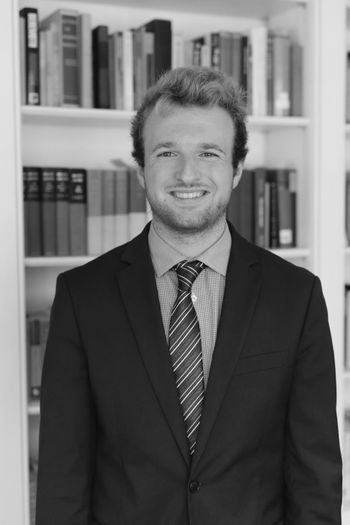U of New Mexico course examines Breaking Bad through identity politics, discusses ‘Chicanx representation’
The course ‘examines American and Chicanx representation and identity through a case study of the wildly popularly and critically admired television series Breaking Bad.’
‘Themes include American national identity, masculinity, the US West, the Mexican-American borderlands, and New Mexican Chicanidad,’ the syllabus says.
The University of New Mexico’s American Studies program is offering a fall course that makes students watch the popular television show Breaking Bad through the lens of race and gender.
The course, titled “Breaking Bad: TV, Race, and Gender,” uses identity politics to analyze the show, which follows the story of a family man’s transformation into a ruthless Meth kingpin after being diagnosed with a terminal illness.
The course syllabus—which was obtained by Campus Reform through a public records request earlier this month—states that “[t]his course examines American and Chicanx representation and identity through a case study of the wildly popularly and critically admired television series Breaking Bad.”
[RELATED: American University offers ‘women specific’ self-defense class that is ‘trans inclusive’ and open to anyone who ‘identifies’ as a woman]
“Themes include American national identity, masculinity, the US West, the Mexican-American borderlands, and New Mexican Chicanidad. All are analyzed through the cultural studies lens including the social categories of race, gender, and the politics of representation. In this class, students will view the first two seasons of Breaking Bad including a small number of additional episodes, read related scholarly literature, and write a research paper focused on Breaking Bad and US identity and Mexican American issues,” the syllabus continues.
Students who complete the course will be able to “articulate and critically analyze television media in terms of race and gender” and to “apply American Studies and/or Chicanx Studies concepts to popular media.”
Michael Trujillo, the course professor, is an associate professor at the university’s Department of Chicana & Chicano Studies. According to his school bio, some of his previous courses include “Marxism and the Interpretation of Culture,” “New Approaches to Chicana/o Studies,” and “Introduction to Chicano/Hispano/Mexicano Studies.”
The Department of Chicana & Chicano Studies promotes “Chicana/o cultural studies,” “Politics and social justice,” and “The transnational U.S.-Mexico experience.”
“The program offers courses on gender and sexuality, race and ethnicity, arts and culture, political and social mobilization, immigration and citizenship, history and heritage, land grant studies, Chicana feminism, and queer studies,” the department page advertises.
Trujillo told Campus Reform: “I want students to think of BB [Breaking Bad] as they might think of a novel or work of art. We use the course to examine questions key to both American Studies and Chicana/o Studies as fields, develop student understanding of media and art in terms of semiotic representation, and consider our home region in the context of regional, transnational and global forces.”
He added that “BB is a well made cultural/artistic work that makes critical comments about the world it describes. It is also sometimes an expression of many of the things that are most disturbing in our society,” and that, “like a great novel, BB is a rich text for us to engage.” He also said that he wants “students to think differently and critically about the popular culture we consume.”
Other schools are also offering courses that use identity politics as a lens to examine culture.
[RELATED: University of South Carolina required students to pass DEI assessment to register for courses]
One upcoming Harvard University spring semester course will teach students about “Queering Education,” studying the “hidden curriculum” of “heteronormativity and cisnormativity” in American education.
The University of Hawaii will also offer a course titled “Queer Dance Exploratory” that looks at “Queer dance exploration in movement practices and performance.”
Campus Reform contacted the Department of Chicana & Chicano Studies and the University of New Mexico for comment. This story will be updated accordingly.

